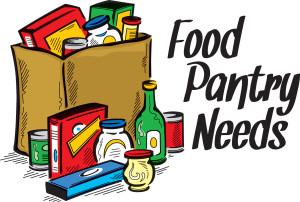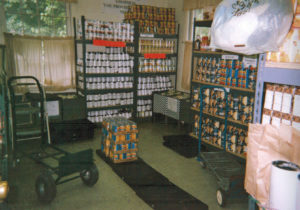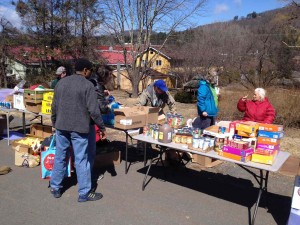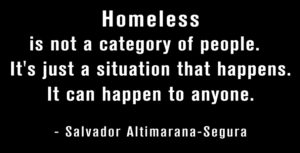Politicians – the Season Begins Again!
The political season begins again. In Woodstock, the politicians come calling. They knock on the door – their smiles open, their outfits perfect.
And, they don’t want to hear any questions – not from me, anyway.
I answer the door and listen to their message. I’m waiting to pounce, really. Because, I know they don’t know anything about hunger in our area.
And, I do know about hunger in our area.
The minute I open my mouth, they start to run for it.
Well, not so fast politician. Not so fast. You can’t leave my front door without taking a copy of one of my books with you.
I really know more about the economics of this area than they know. I know about children who go to school hungry. I know about families who routinely choose between food and transportation, food and housing, food and healthcare.
The politicians know their dance is up for today. Because I know about homelessness. I know the difference between shelter and housing.
Woodstock is a community where people working here come from somewhere else.
Each year, I figure that some kind of message will go out and no politicians will knock on my door. I’m wrong every year.
So, I sit – waiting to pounce.
Lord, I apologize. I simply can’t help myself. Someday, I’m going to apologize and know its the last time because I won’t act this way next time. I’d be lying to you now, Lord, if I even pretended that I won’t do it again.
I love pouncing on these people who knock on the door. I love to tell everyone how hard it is for the elderly to get food when their shoulders and knees don’t work anymore. I love to talk about friends I have who don’t drive anymore and who live in a food desert.
Lord, as seniors, we routinely pay more, get less, and do without. The without part comes because we’re outliving our savings.
I feel like everyone needs to know these things. How are the politicians going to know about them if I don’t tell them? I’ve convinced myself that its part of my job as a food pantry volunteer.
Food pantries are mostly hidden services. People shopping at one certainly don’t tell anyone where they get their groceries. And, the volunteers don’t talk either.
In the beginning, I was bothered about this but I’ve come to realize that food pantries are places where miracles happen. And, miracles are much easier if no one knows about them.
Lord, on behalf of everyone who shops or volunteers at a food pantry, I offer gratitude for the many miracles You perform on our pantry day.
And, Lord, thanks for sending these politicians over to my house every voting season. I love to pounce and then send them away with my books.
Thank you again Lord. I offer gratitude on behalf of everyone who shops or volunteers at a food pantry.
Amen
Thanks for reading this article! If you enjoyed it, check out some of the older articles. Hunger is not a Disease is an fascinating story about hunger in a small town food pantry. This blog has been relating stories and events for ten years!
I’m amazed when I read this. I never, in my wildest dreams, thought I would be writing about hunger and homelessness for over 10 years. And yet, here I am, plugging away!
What a journey this blog has been – and continues to be.
What was I thinking?
Please share this article with your friends and family. Forward it to your preferred social media network and post it on Facebook even.
Check out my books on www.thurmangreco.com. The website is being repaired so contact me at thurmangro@gmail.com to purchase one or more of the books.
Let’s Live with Thurman Greco is a program aired weekly on Woodstock’s own educational TV channel 23. This show is an informative, upbeat hour with no rehearsals. Some segments support the blog information and highlight Reiki Therapy, Hand and Food Reflexology, and other wellness subjects.
Guests are various people whose lives have brought them to Woodstock for a day, a week, an hour, a decade, or more. I can truthfully boast that guests report they enjoy the experience.
Let’s Live has been running for over 15 years with an occasional intermission now and then.
Enjoy interesting and fun programs while getting a peek into Woodstockers being themselves. Search “Let’s Live with Thurman Greco” on YOUTUBE and check out the ever growing list of videos.
Please contact me at thurmangreco@gmail with comments or questions.
Preventing Senior Hunger
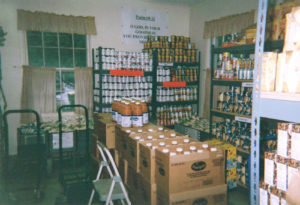
For years, I’ve been blogging and writing books about hunger in America in general and senior hunger specifically.
Senior hunger is not going away anytime soon.
If you read my blog posts, then you are probably interested in senior hunger. Recently I came across a guide which you will want to read.
To learn more about senior hunger, access it here: https://onlinegrad.baylor.edu/resources/seniors-food-insecurity-hunger/
Thanks for reading this article and thanks for your interest and action.
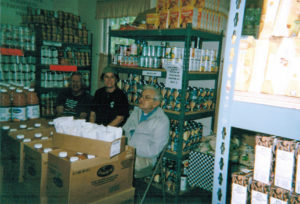
I hope you’ll not only read this article but will also share it wherever you feel it might be appropriate.
This new resource may be of interest to readers everywhere. The goal is to help open a dialogue in our country about senior hunger.
Thank you for your time and thank you for your concern about seniors and hunger.
Thurman Greco


Please share this post with your preferred social media network.
Hunger: An Introduction
The first time I ever saw a child begging for food was in Mexico. I was on a car trip going through Monterrey on the way to visit my future in-laws in Mexico City. When we parked the car in front of a restaurant, children immediately surrounded the vehicle. Small children held their hands out, asking for money for food. Each held up little brown palms. Their pleading faces looked into my eyes.
At that time, I didn’t yet speak any Spanish, but I didn’t need a vocabulary beyond English to understand the situation. Their body language spoke of expectations, hope and hunger.
“Don’t worry yourself about this Coit. They’re just after a few pesos.” My soon-to-be husband tried to comfort me. In my heart I knew different. The child we discussed was about the size of a thin eight-year-old. Teeth don’t lie though. He had a mouth full of adult teeth. That put his age at about twelve years.
In Mexico, children dig through trash for food. And, nine years after this road trip, in Mexico City, a beautiful young Indian woman standing on a corner tried to sell her infant. She approached my church friends first, an American couple in Mexico City on a study visa. Bob and Sue felt they couldn’t get the baby over the border when they returned to the U.S. at the end of their class. I wasn’t a good candidate because, at the time we discussed the baby, I was still married, had no visa or citizenship papers, and didn’t feel I was ever going to cross back over the river heading North.
Whatever happened to that beautiful baby? Whatever happened to her desperate mother? I’ll never know.
You want to talk hunger, then let’s discuss Venezuela and Mexico for a while. Even now, years later, I remember each encounter with a hungry person or household as if it happened only yesterday. I’ll never forget those people, the look of hunger in their eyes.
When people wanted to talk to me about hunger in America, it was a nonissue. Hunger in America? Whoever heard of such a thing?
Hunger has been with us in this country since the beginning. Famous American history stories include Pilgrims starving over the first winter in their new home. The stories of Mormons starving when they headed west are just two. These stories are different from segments of our population going to bed hungry because there isn’t enough money for food.
Even though I’m the loudest mouth in the crowd when I talk about hungry people in America, I’ve never seen hungry children begging for food when I park my car outside a store or restaurant.
Somehow, in this country, hungry people keep themselves hidden unless they are in the food pantry or soup kitchen line.
I lived in both of those places. I could talk hunger with you “until the cows come home,” as my grandmother said. But America? “Fuggedaboutit,” as I heard someone say once on a Brooklyn bus tour.
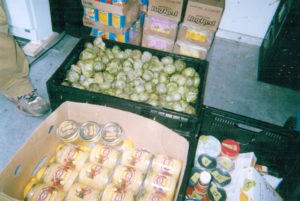
Thank you for reading this blog post. It is an excerpt from “The Ketchup Sandwich Chronicles”. I’ll be posting more stories from this book in the coming days.
I hope you enjoy them. If so, please refer the posts to your favorite social media network.
But, whether you refer them or not, I thank you for reading this story.
Thurman Greco


Food Pantries are the first line of defense against hunger.

The truth is that food pantries are not perfect. Not anywhere near perfect, actually. And, they never will be. How can they be near perfect when there is often not enough food in the pantry to feed the many people shopping there?
But, they get to be as near to perfection as they do because the people who work in them are often retired, elderly volunteers who really care and have the time to put in extra effort.
And, how can they be perfect when the food is mostly donated food that was on its way to the landfill before some enterprising person snapped it up for the hungry people in the line?
And, the truth is that food pantries, to a certain extent, are neighbors helping neighbors. This is a wonderful attitude.
The positive energy is exhibited in this sharing wonderful world, indeed. Without these wonderful people and their generous attitudes, people would be starving in this great nation of ours. Food pantries are our first line of defense against hunger.
But, often these food pantries which depend to a great extent on the generosity of individuals simply don’t have enough food. Insufficient is the word used.
Because there is little oversight, there is little control. So, a person shopping at a pantry may get enough to eat or may not. The quality of the food has little oversight. So, the person shopping may be getting food which is all out-of-date, or which is food which cannot be eaten by the person needing the food.
An example of this is the person without teeth. People without teeth are very restricted in what they can take because they can’t chew many foods.
Another example is the diabetic person who can only eat certain types of food without health problems.
And, all quality issues aside, there may simply be insufficient food in the pantry to feed the number of people shopping even though a pantry is the first line of defense against hunger.
Personally, in the Good Neighbor Food Pantry, I had a morning when I ran out of food. I simply didn’t have enough food to give to the people. This was an experience I’ll never forget.
Finally, the Hunger Prevention Nutrition Assistance Program people sent down guidelines requiring that pantries serve a three-day-supply of food for each person in the household. HPNAP guidelines required that pantries serve fresh or frozen fruits and vegetables. Pantries were asked to serve whole grain breads and low-fat milk.
This was a wonderful thing which I applauded enthusiastically when I learned about the guideline. However, it was challenging to the many pantries without freezers and refrigerators.
The truth is that pantries everywhere simply don’t have enough food to meet the demand.
What can we do about this? For starters, we can realize that pantries are our first line of defense against hunger in this country.
Then, we can follow up this realization with food donations throughout the year.
One can of something every week helps over time. Find a pantry and give to help those in need. Do you plant a garden in the summer? Add a row for your pantry!
Thank you for what you are doing for those in need.
